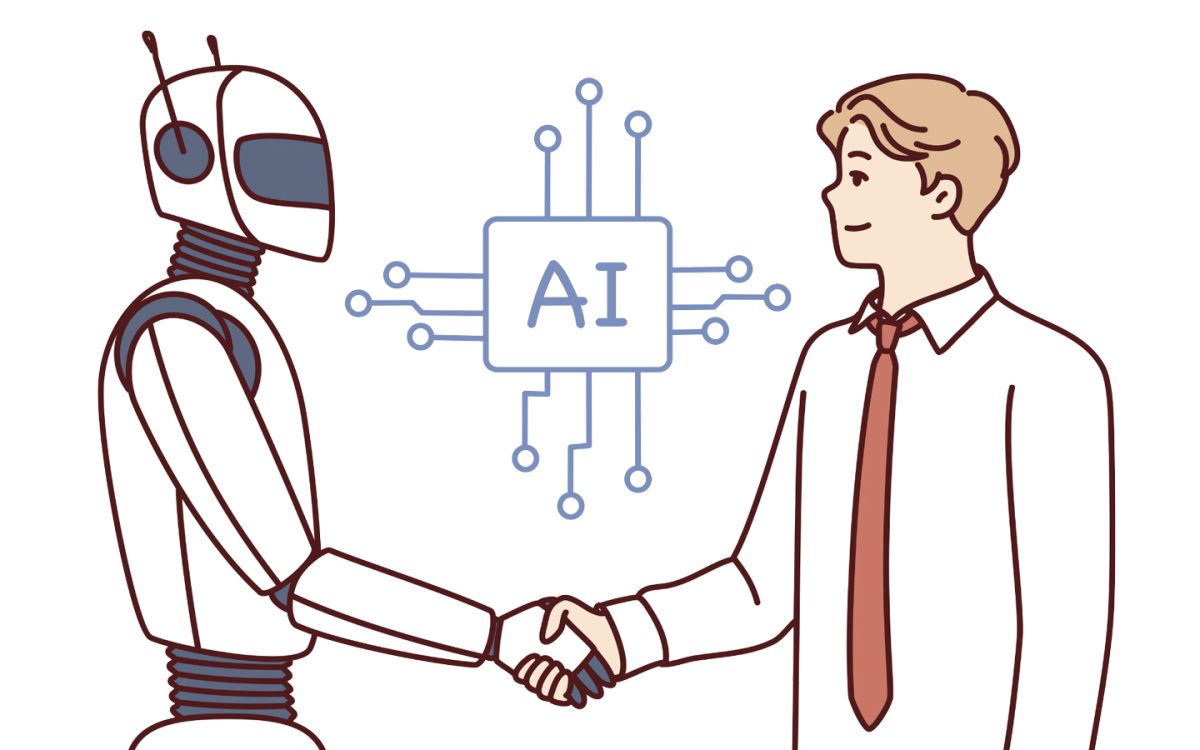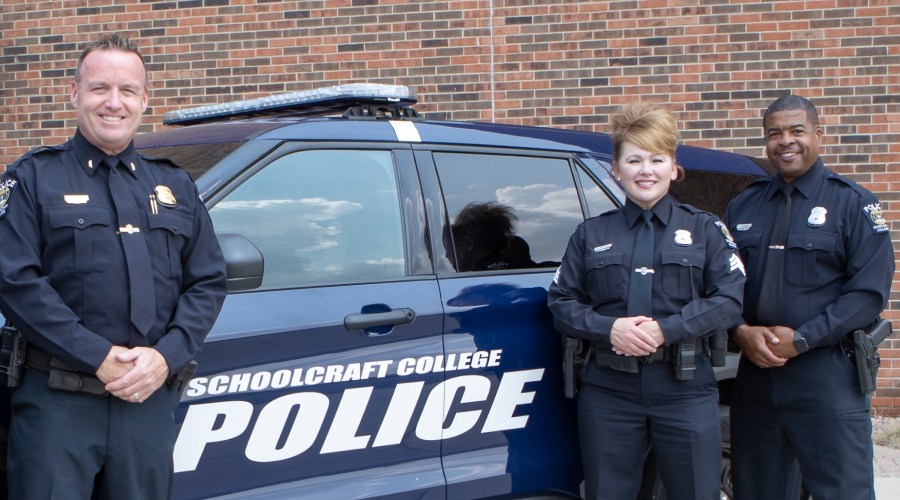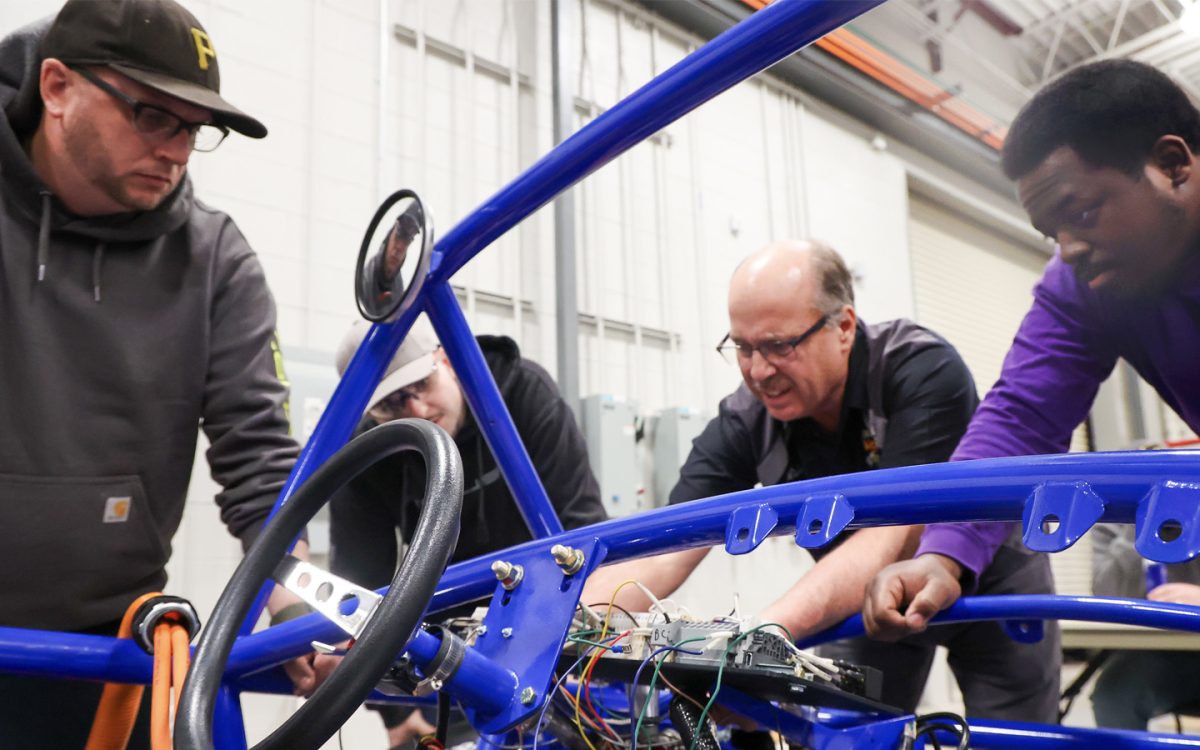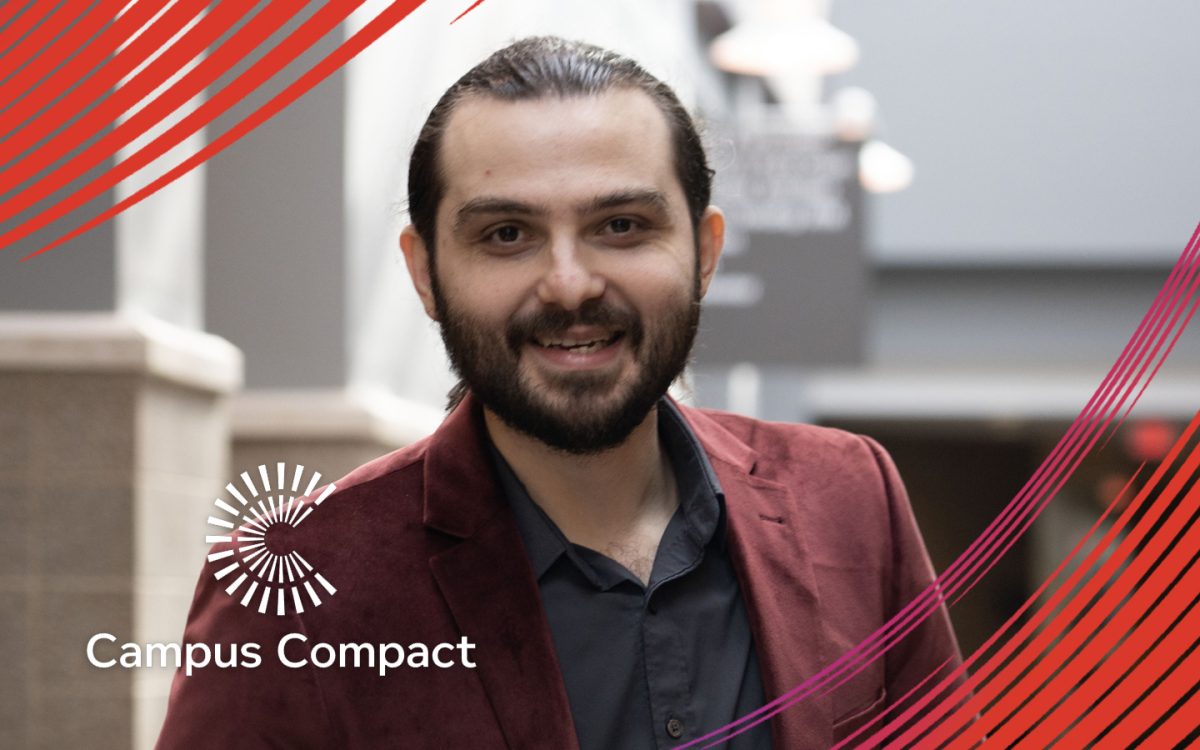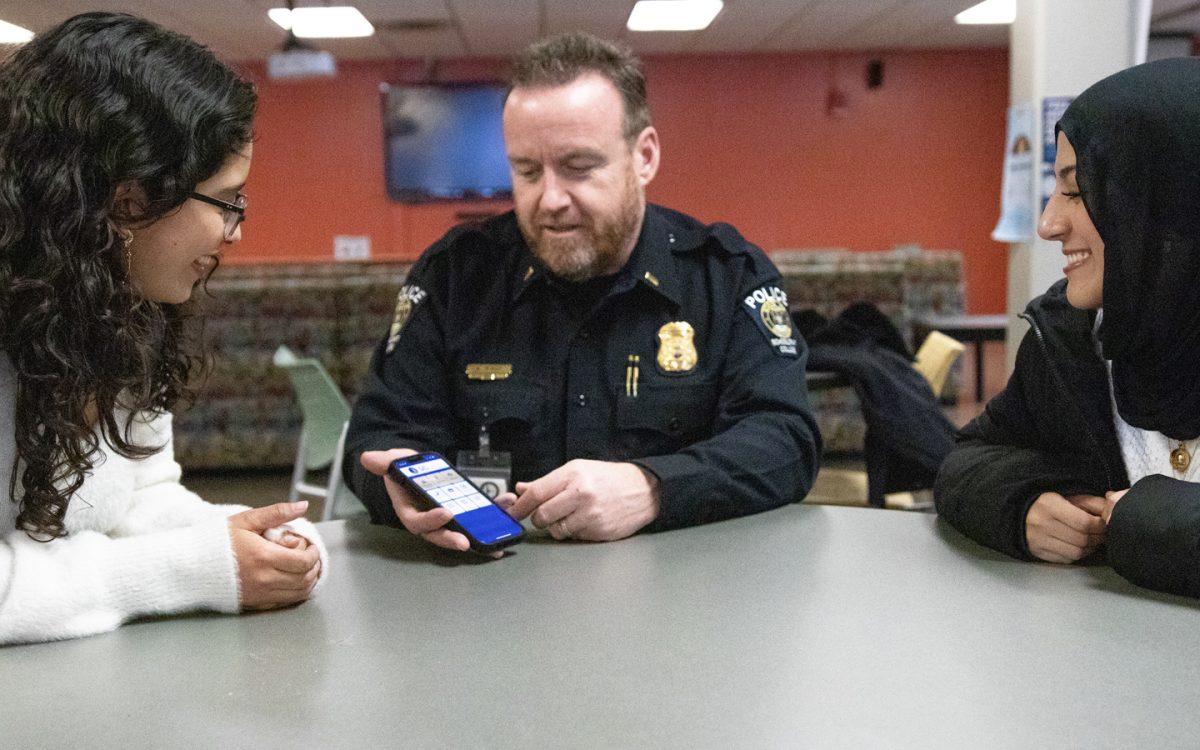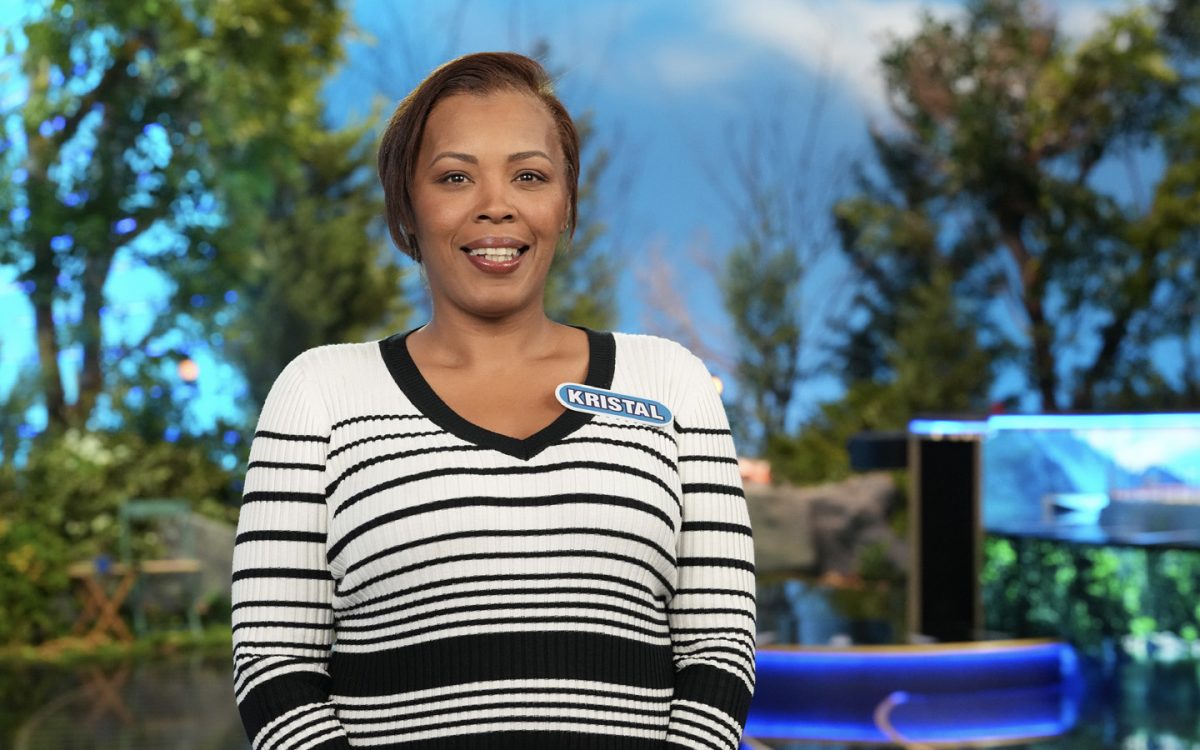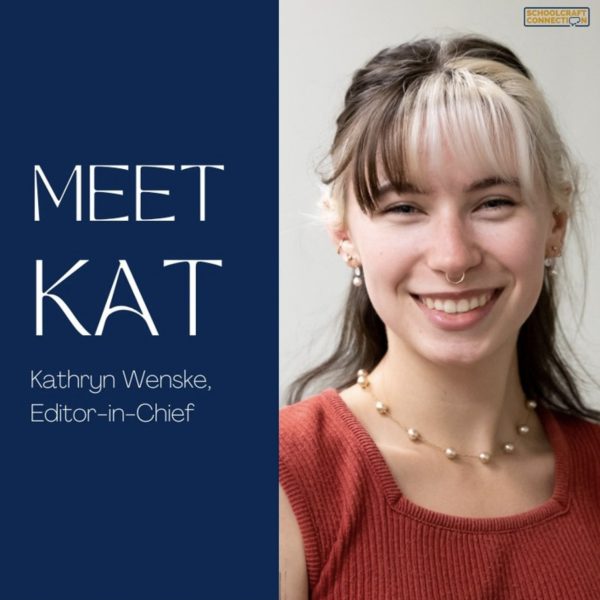On the top of many people’s minds, discussions have arised as Artificial Intelligence (AI) is becoming more and more integrated into our daily lives. There has been much concern regarding its involvement in education, and if we should include it as a tool in instruction and assignments.
If we do decide to continue or begin AI use in classrooms, how do we do so ethically?
Schoolcraft’s Phi Theta Kappa Omicron Iota Chapter (PTK) jumped onto the case, dedicating their Honors In Action Project (HIA) researching and analyzing how AI might be incorporated into campus life long-term.
“I’ve used [AI] myself to get clarification on questions or I’ll have AI reword the question when I’m struggling on an assignment. I’ve seen it work, [but] also seen it not work,” said PTK Secretary Kendall Borchant. “I feel like some people don’t understand how to use it correctly, and I think it’s very important to clarify that so that students aren’t getting in trouble or accidents [happen].”
Due to the prevalence of AI as a topic, it became something the PTK team discussed as well when deciding what their project should be based on. They wanted to explore its utilization in specifically education, among other things, as numerous other colleges have been experimenting with AI involvement in classroom settings. However, the team noticed many gray areas due to the absence of regulation and ethical standards because of how new AI is.
“There are genuine concerns around copyright, privacy, academic integrity and even human rights issues associated with generative AI that need to be addressed,” said the Director of Academic Innovation Adam Authier. “Some of this feels outside of our control, but we, as an industry, also have an opportunity to shape the responses to these issues, which is encouraging. Scary, but encouraging.”
The PTK team identified some hard questions, including how much AI may be used that will still maintain integrity in artwork and academics, addressing those gray areas, if AI encourages laziness and cheating in academics, and if it dissolves motivation and creativity. This was their starting point.
“AI is here and it will be better technologically. Just like the internet, people are divided in the intention, usage [and the] pros and cons of AI. From our research so far, we have found that it is here and can be used as a tool for our advancement,” said PTK President Homayra Adiba. “However, how an individual decides to use AI is really up to the individual. Institutionally, it is our responsibility to shed some light on the topic to help students and teachers understand some of the diverse ways it could be a day-to-day part of education.”
This topic also hits home for some of the PTK members as well, including Adiba, who are active in the artworld. As AI is new, there was a struggle regarding research but PTK did find a lead when exploring how AI has been applied so far; which stemmed from a famous photographer.
PTK hosted a discussion event with German artist Boris Eldagsen on Sept. 29, discussing his activism that started when he rejected his first place Sony World Photography Award. After he received the honor, he clarified that AI created the image and should be used as a tool like his camera, but not to quite literally manufacture an image.
He entered an AI-generated photo into the competition with the intention of the piece to draw attention to the possible manipulation of AI; which calls for the need to reconstruct guidelines in art exhibitions, museums and competitions.
This discussion with Eldagsen offered PTK a direction to how AI, arguably, should be used.
“What Boris is trying to say is that AI is nothing but a tool. For craftsmanship, if you do not have excellence and knowledge of the context, you are unable to create exceptional conceptual pieces with or without AI,” said Adiba. “In education, the same could be argued. Authenticity, false news/information, personal identity, etc. [have been necessary topics intertwined into ours and Eldagsen’s discussions of AI.]”
PTK will continue to collaborate with on and off campus resources, including Authier and Student Relations Associate Dean Nicole Wilson-Fennel, with their project dedicated to navigating how AI can be included in the college’s curricula as a tool and designing regulations for AI use.
As a requirement for the honors organization that the Schoolcraft’s Chapter runs out of, the team must choose one honors theme for their HIA Project as a guideline. The team chose Theme 4: Architecture and Design of Play.
The PTK team plans to utilize an interactive game, like Kahoot, to execute their action of obtaining the student perspective to provide recommendations for when the administrators of the college are designing regulations for AI usage, as well as the goal of accurately informing the campus overall.
As part of their research and getting the student perspective, the Omicron Iota Chapter hosted a panel discussion on Nov. 10 regarding AI in education and beyond, including surveys before and after the event to gain the thoughts students came with, and left with to gain the student perspective.
The PTK Chapter is still finalizing their project, but one thing for sure is that with the right direction/intention, AI can be a great tool for students, faculty and staff that does not have to erode creativity and integrity.



